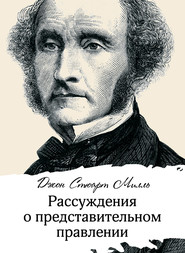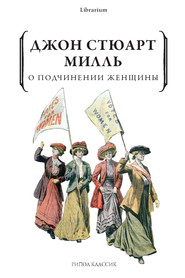По всем вопросам обращайтесь на: info@litportal.ru
(©) 2003-2025.
✖
The Subjection of Women
Настройки чтения
Размер шрифта
Высота строк
Поля
: Title-page of Mme. de Stael's “Delphine.”
2
: Especially is this true if we take into consideration Asia as well as Europe. If a Hindoo principality is strongly, vigilantly, and economically governed; if order is preserved without oppression; if cultivation is extending, and the people prosperous, in three cases out of four that principality is under a woman's rule. This fact, to me an entirely unexpected one, I have collected from a long official knowledge of Hindoo governments. There are many such instances: for though, by Hindoo institutions, a woman cannot reign, she is the legal regent of a kingdom during the minority of the heir; and minorities are frequent, the lives of the male rulers being so often prematurely terminated through the effect of inactivity and sensual excesses. When we consider that these princesses have never been seen in public, have never conversed with any man not of their own family except from behind a curtain, that they do not read, and if they did, there is no book in their languages which can give them the smallest instruction on political affairs; the example they afford of the natural capacity of women for government is very striking.
3
: “It appears to be the same right turn of mind which enables a man to acquire the truth, or the just idea of what is right, in the ornaments, as in the more stable principles of art. It has still the same centre of perfection, though it is the centre of a smaller circle. – To illustrate this by the fashion of dress, in which there is allowed to be a good or bad taste. The component parts of dress are continually changing from great to little, from short to long; but the general form still remains: it is still the same general dress which is comparatively fixed, though on a very slender foundation; but it is on this which fashion must rest. He who invents with the most success, or dresses in the best taste, would probably, from the same sagacity employed to greater purposes, have discovered equal skill, or have formed the same correct taste, in the highest labours of art.” —Sir Joshua Reynolds' Discourses, Disc. vii.
















